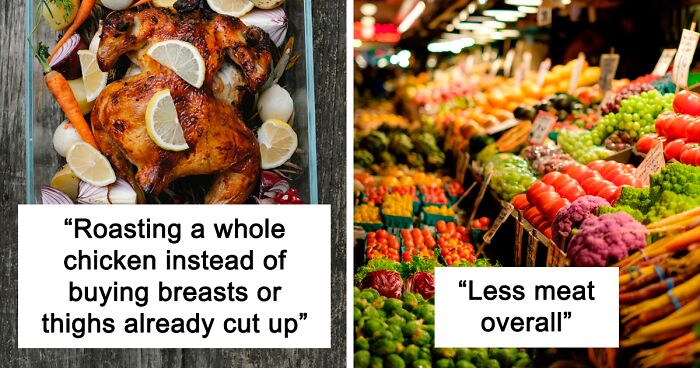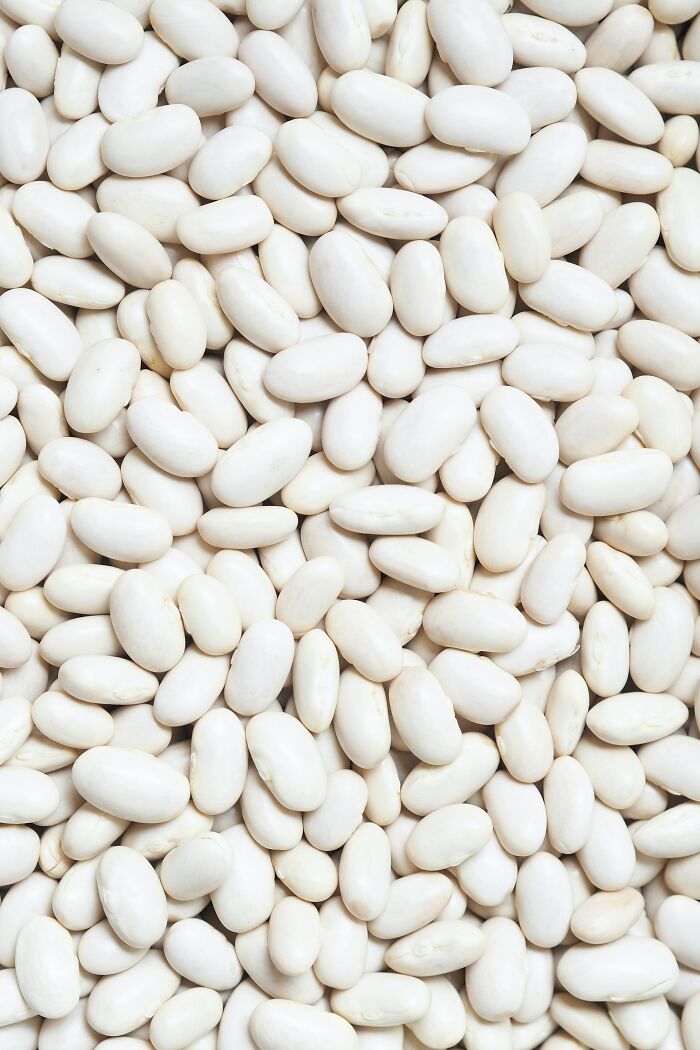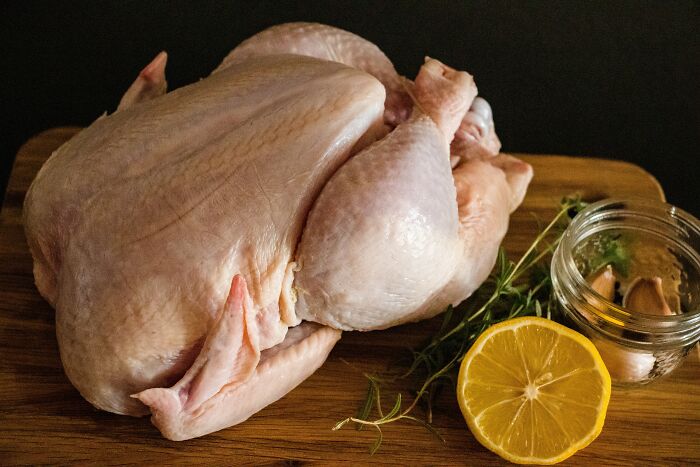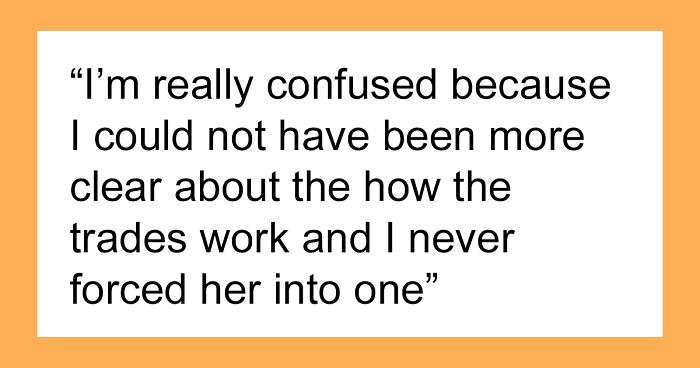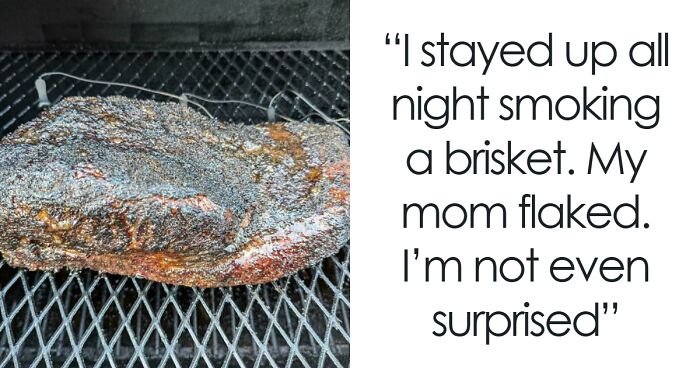We don’t have to tell you that times are tough, dear Pandas. You likely already noticed how everything costs just a bit more (or, well, a LOT MORE in some cases), and how some food packages at your local grocery stores are shrinking and shrinking. Meanwhile, some food items simply don’t get delivered to your neighborhood anymore and the quality of some groceries might not be the same as before. Welcome to the awful world of inflation, supply chain issues, and financial worries.
High gas prices, rising food costs, and the inflated cost of rent are all making many people look over how they budget things. They’re looking for areas where they can cut back. Drastically. Some choose to change their eating habits but aren’t sure where to begin. Luckily, the internet’s full of unsung, kitchen-savvy heroes who are willing to teach others how to eat well in a way that’s lighter on the wallet.
We’ve collected the very best cooking and grocery-shopping hacks shared by the r/AskReddit community in this thread, so scroll down and be sure to take notes. Upvote the tips and tricks that you found the most useful. And if you’ve got some awesome money-saving cooking advice to share with all the other Pandas, we’re all eyes and ears—drop by the comments and share some of your wisdom.
Bored Panda got in touch with cooking and baking grandmaster Jessica Leigh Clark-Bojin, who's known all around the globe for her fabulous pie art. Jessica shared her thoughts on saving money on food, whether it makes sense to freeze food nutrition-wise, and she even revealed her awesome idea for a cheap-but-delicious meal for the entire family.
"Everyone is feeling the pinch the world over right now—so don’t go it alone! Team up with friends and relatives and develop your cost-cutting strategies together. Your purchasing power is greatly increased when you shop together and you can share tips and keep an eye out for deals together," the pie artist told us that you should look to your friends, family, and community for help in these times. Scroll down for the full interview.
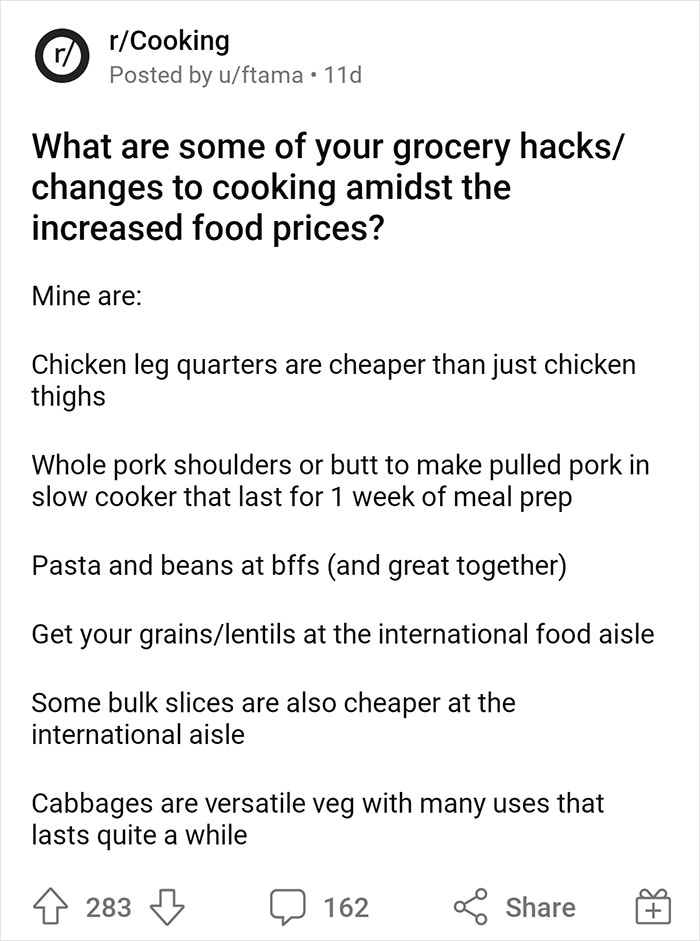
This post may include affiliate links.
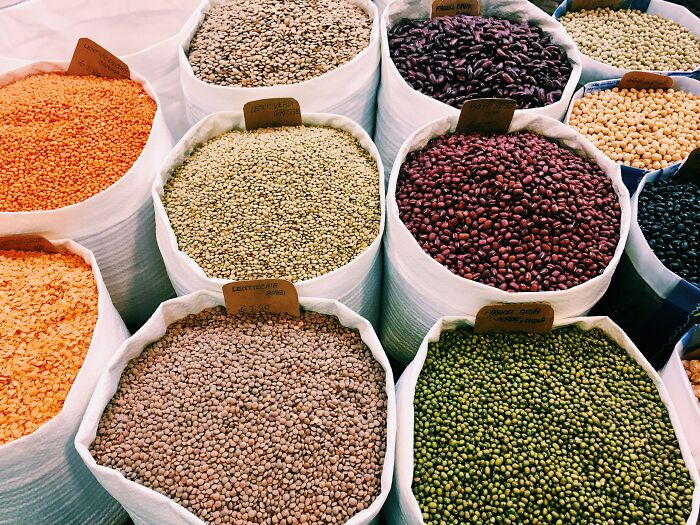 instead of getting grains/lentils from international food isle, visit an Indian groceries. you will see grains/lentils that you have never seen before and much cheaper. also many of the lentils have high protein contents.
instead of getting grains/lentils from international food isle, visit an Indian groceries. you will see grains/lentils that you have never seen before and much cheaper. also many of the lentils have high protein contents.
IF there’s such a market in your area. We don’t all live in large cities. The tiny rural farming town I live in has a Walmart with a grocery. That’s it. I would have to burn enough gas for a 60+ mile round trip to the nearest decent-sized town just to have access to that “cheaper” store.
According to Jessica, going meatless is a great way to scale back on grocery costs. "If you are looking to cut back on your family grocery budget, consider adding one or two extra meatless days to your existing schedule. Meat, especially red meat, just costs so much more to raise, process, and transport safely compared with alternate sources of protein. Unless you’re dealing with mystery-meat level fast food processed stuff, it’s never going to be able to compete on price," the pie artist and author told us.
While plenty of people suggest buying food in bulk and/or on sale and then freezing it for later use, some wonder if that won't destroy all of the nutrients inside. Bored Panda asked Jessica to enlighten us about the freezing process.
"You can certainly freeze fruits, veggies, and meat to eat later without sacrificing nutritional value," she said. "Just make sure you read up on the correct way to do this to avoid spoilage and freezer burn."
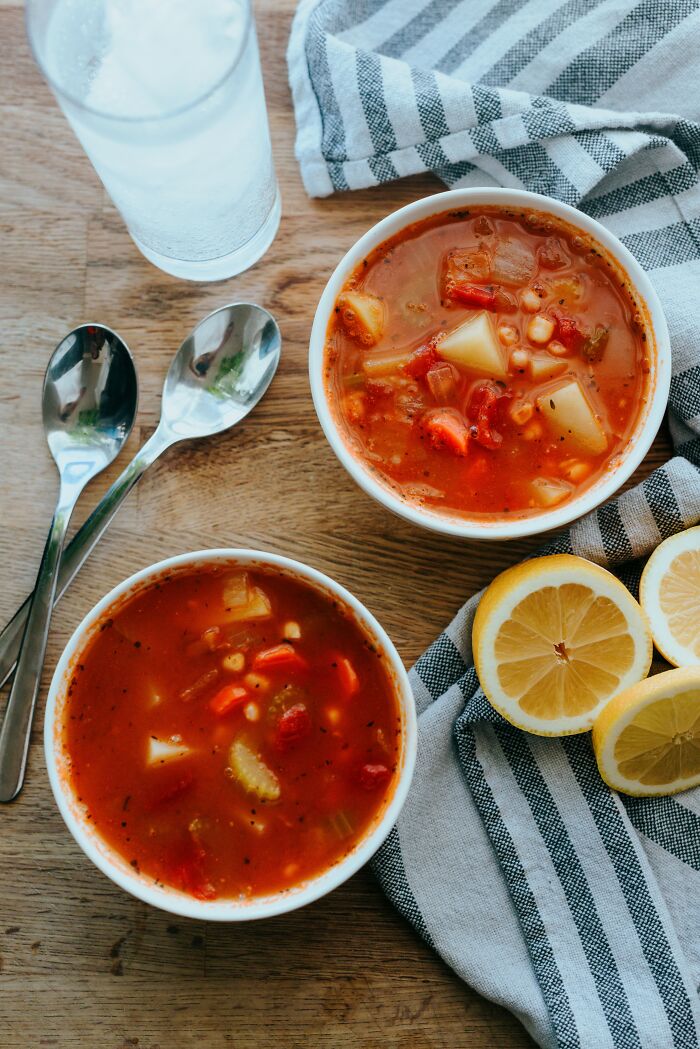 Soup. I know it’s summer and hot af but I love soup anytime. I always bulk buy staples like diced tomatoes, beans, veggies etc. last night I made tomato basil soup with fresh basil from my garden. Eat some freeze some.
Soup. I know it’s summer and hot af but I love soup anytime. I always bulk buy staples like diced tomatoes, beans, veggies etc. last night I made tomato basil soup with fresh basil from my garden. Eat some freeze some.
Canned tomatoes, frozen mix veg and a handful of lentils and you've got a filling pot of healthy soup for a couple bucks.
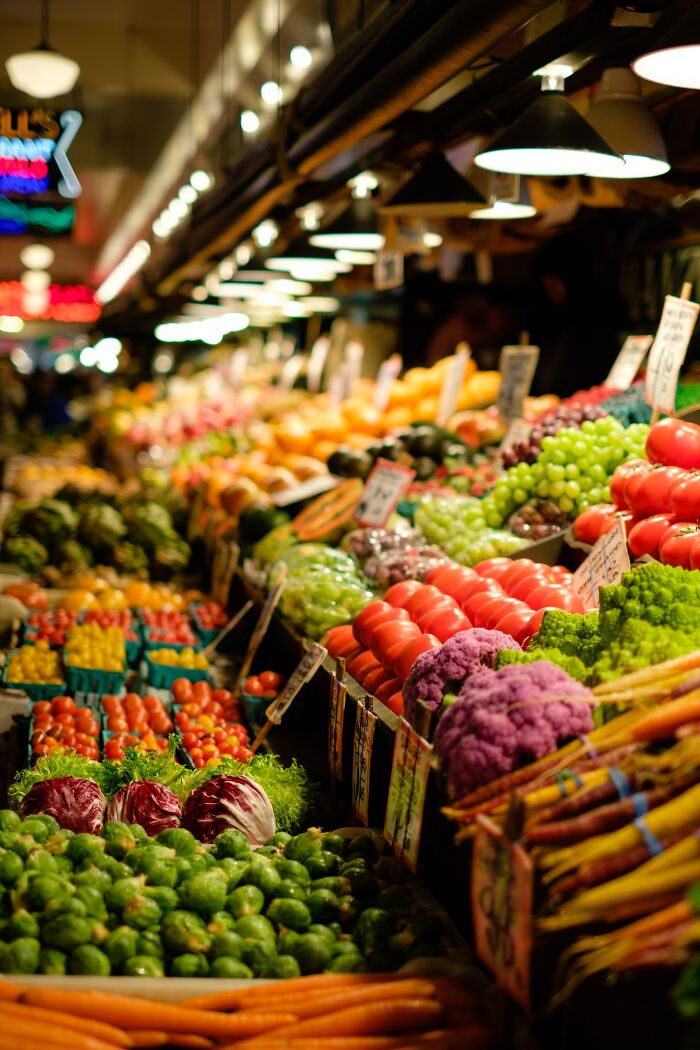 Less meat overall. Cabbage is super affordable and can be salad, sautéed, or ingredients in stir fry. Eggs - quiche, omelettes, scrambles. Bananas are amazingly cheap per pound and make amazing smoothies and desserts. Soups and stews with leftovers and add rice and beans. Grow your own herbs - I haven’t bought rosemary in decades because the fresh one on my porch is amazing and hard to kill. It can really elevate those on sale potatoes.
Less meat overall. Cabbage is super affordable and can be salad, sautéed, or ingredients in stir fry. Eggs - quiche, omelettes, scrambles. Bananas are amazingly cheap per pound and make amazing smoothies and desserts. Soups and stews with leftovers and add rice and beans. Grow your own herbs - I haven’t bought rosemary in decades because the fresh one on my porch is amazing and hard to kill. It can really elevate those on sale potatoes.
Bananas have a monstrous environmental impact. Cultivation erodes end exhausts soil, destroys biodiversity and replaces forest land. It is the culture requiring most agrochemicals than any other in the world, polluting water and destroying local insect populations and consequently food chains. The production area is limited, and the product expires fast so logistics requires lot of air travel. EVERY DAY, the banana industry alone produces the same CO2 as 4000 ORBITAL ROCKET LAUNCHES.
The baking and cooking pro noted that if you're planning on freezing food, you need to get all the air out of the packaging before it's sealed. "Ensure that it is properly double bagged to avoid air leaks in the freezer. Or better yet, invest in a vacuum sealer!" she suggested.
"Buying groceries items in large lots and splitting between multiple families is a great way to take advantage of bulk discounts when your own pay-check doesn’t permit you to go out and invest in 10 lbs of cheddar on your own. Bonus points if you have a friend who is able to buy from restaurant suppliers directly or is part of a co-op!" she said that with a bit of communication, coordination, and flexibility, you can make each dollar do a lot more work.
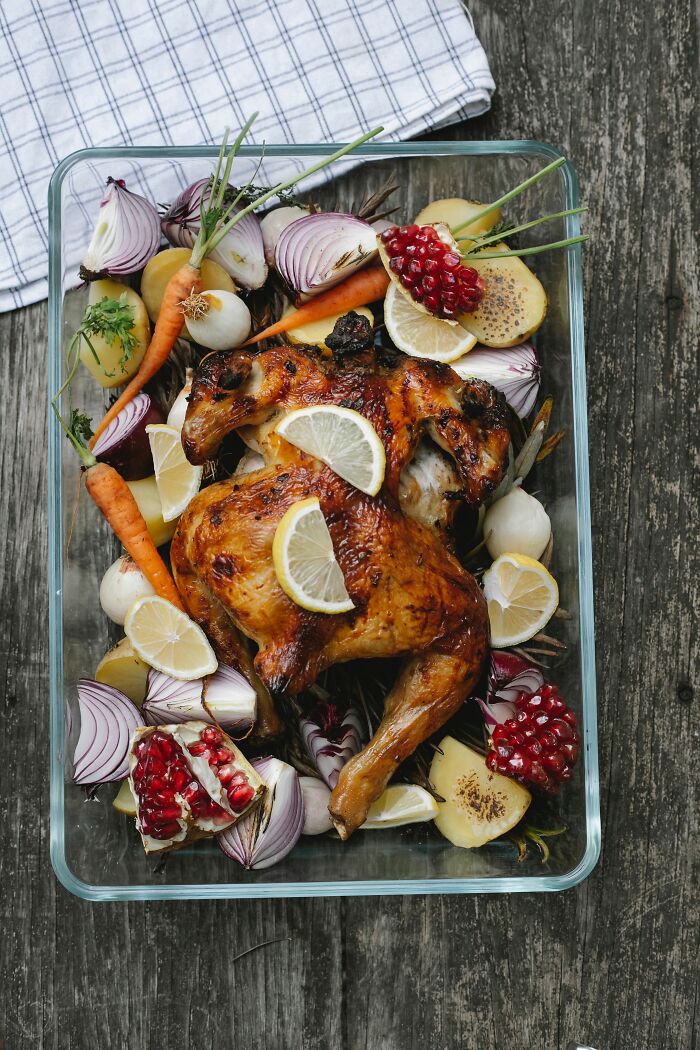 Roasting a whole chicken instead of buying breasts or thighs already cut up. I think I paid $5.50 for a whole chicken and $9 for 4 breasts.
Roasting a whole chicken instead of buying breasts or thighs already cut up. I think I paid $5.50 for a whole chicken and $9 for 4 breasts.
The advice is great, but the photo is not. Why is there a roasted chicken with raw vegetables?
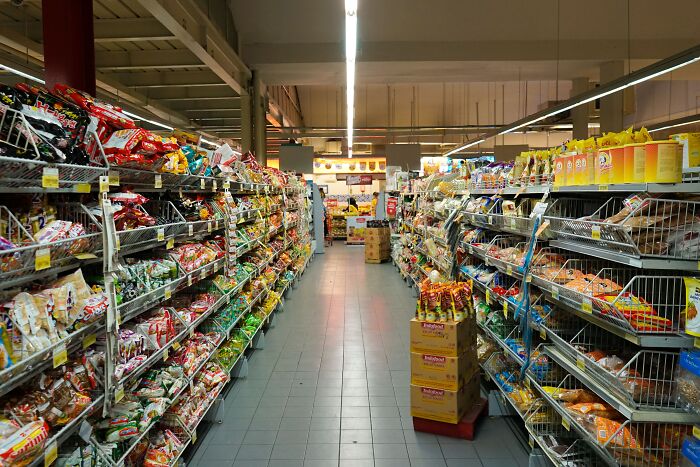 Avoid processed foods. Careful shopping to minimize waste. Cheap veggies like potatoes, onions, carrots, cabbage, etc. Plant based foods like grains and legumes.
Avoid processed foods. Careful shopping to minimize waste. Cheap veggies like potatoes, onions, carrots, cabbage, etc. Plant based foods like grains and legumes.
We also wanted to get Jessica's advice on what to do if you've got an entire food to feed and you're trying to keep everyone happy on a smaller budget.
"I’m a big fan of stir-fry, using whatever happens to be cheap and in season locally. Rice is super inexpensive and filling as a base, a little soy sauce with some thickener goes a long way as cheap sauce, herbs from your garden (or your neighbor’s garden) can add a little flavor, and then just add in whatever veggies and protein is on sale at the store that week," she shared.
The expert also had an additional pro-tip for us: "When you are stir-frying you don’t need to use the 'pretty' vegetables! Ask your grocer if they have any almost dead carrots or celery. Sometimes they’ll even give them to you for free!" she told us, adding that bendy carrots "come back to life" in water.
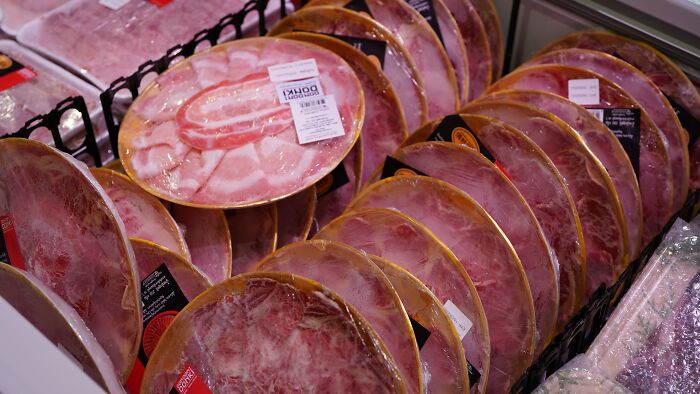 Impulse buy meat thats on sale and freeze it. Its a rare day when i pay full (inflated) price for meat anymore.
Impulse buy meat thats on sale and freeze it. Its a rare day when i pay full (inflated) price for meat anymore.
My aunt learned that the only day the local grocery store was closed was Christmas Day, and on the afternoon of the 24th they would start to discount two days with of meat that would be expiring. She’d buy up a ton and freeze for her family and my grandfather.
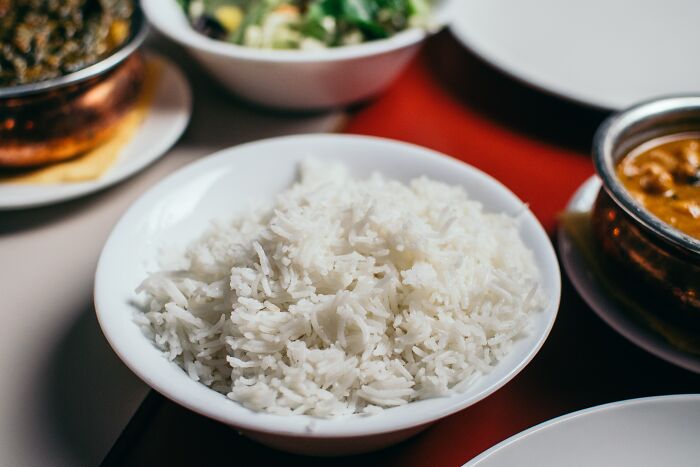 Really started honing my Chinese dish skills because so much of it is rice (cheap) and few veggies and even fewer meat. Like, a single chicken breast can be a part of a 5-6 serving meal.
Really started honing my Chinese dish skills because so much of it is rice (cheap) and few veggies and even fewer meat. Like, a single chicken breast can be a part of a 5-6 serving meal.
Also, refried beans for burritos. So cheap, so delicious.
 1 small chicken is all the meat 1 adult needs in a week. Costs less than £4. I roast and debone it on Sunday, then make meals each evening with it, curry, stir fry, roast dinner etc. Fresh fruit and veg are cheap enough, big 2kg bag of rice lasts ages, porridge for breakfast. Only spent £22 at the weekend for this week's shop.
1 small chicken is all the meat 1 adult needs in a week. Costs less than £4. I roast and debone it on Sunday, then make meals each evening with it, curry, stir fry, roast dinner etc. Fresh fruit and veg are cheap enough, big 2kg bag of rice lasts ages, porridge for breakfast. Only spent £22 at the weekend for this week's shop.
It is not recommended that you eat cooked refrigeratored chicken after 4 days due bacterial growth.
Inflation surged to 9.1% in the United States in June, the highest number we’ve seen in some 40 years. According to CNN, there have been price jumps in pretty much every category. Gasoline prices were up almost 60% compared to the past year. Electricity and natural gas costs increased by 13.7%. And energy prices as a whole rose by 41.6%.
However, rising costs also spread to food items, too, rising 12.2% overall, compared to 2021. Eggs, for instance, cost a third more than a year ago, for Americans. Buying butter is just over a fifth more expensive. And we hope you like milk that costs 16.4% more. Chicken’s up 18.6% and coffee’s 15.8% more expensive.
And while it’s barely ever a good idea to compare anything to super-expensive New York, just to see how much of an economic clown world we’re living in, let’s take a peek at the prices there. The average cost of rent in Manhattan in June 2022 was over $5,000. Meanwhile, the median is just over $4,000.
So, to generalize a bit, it’s getting more expensive to drive to the grocery store, buy the food that you want, drive back, cook it, and pay for the roof over your head. (Especially if you happen to be in NYC.)
 I've changed what I'm growing in my garden this year. I'm currently drowning in raspberries and artichokes, all free! I'm going to be freezing most of my blueberries and preserving/canning almost everything else. I've also planted extra onions and squash because they keep for a long time and make an excellent and filling side with dinner. I still have some squash from last season that we are using up.
I've changed what I'm growing in my garden this year. I'm currently drowning in raspberries and artichokes, all free! I'm going to be freezing most of my blueberries and preserving/canning almost everything else. I've also planted extra onions and squash because they keep for a long time and make an excellent and filling side with dinner. I still have some squash from last season that we are using up.
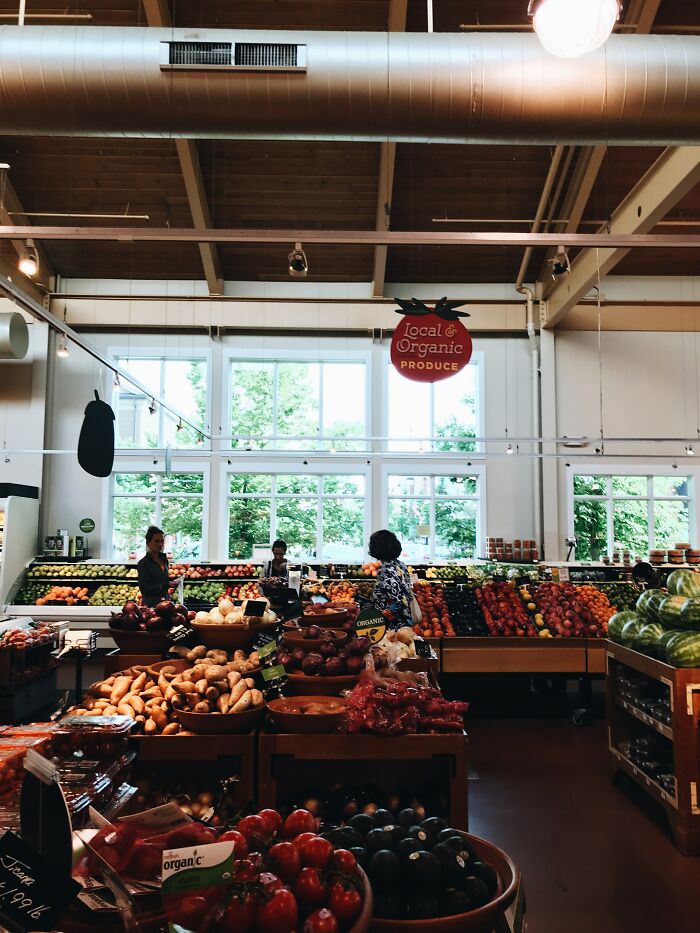 It will sound obvious, but go to the store and see what’s on sale, especially in seasonal items like fresh produce.
It will sound obvious, but go to the store and see what’s on sale, especially in seasonal items like fresh produce.
People often go in with a plan that may have nothing to do with what’s a good price that day.
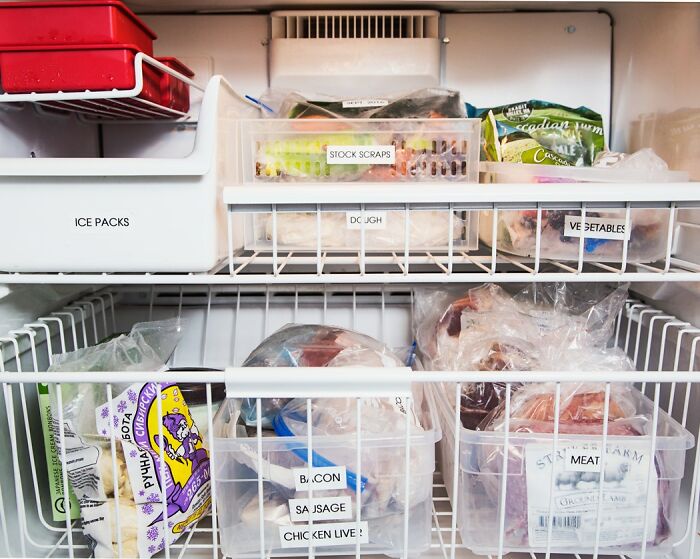 I'm freezing a lot more stuff and being much more proactive about labeling and using up foods before it goes bad.
I'm freezing a lot more stuff and being much more proactive about labeling and using up foods before it goes bad.
There are only two of us and in the past I might toss out half a can of tomato sauce because it would go unused after a recipe.
Now everything gets portioned out and frozen on the spot with a label. I've got butter molds that I use to freeze four ounce sticks of broth and other liquids.
I'm also eating at home more for lunch whereas I used to eat lunch out once or twice a week. Now it's more like once or twice a month.
Wow, it's quite sobering to read that there are people that would throw away half a can of perfectly useable tomato sauce (not sure what this means? sauce for pasta? tomato puree? tomato ketchup?)! Why would anyone ever throw perfectly good food that they could easily eat in the bin, even if they can afford to?????? So many uses for whichever type of tomato sauce this refers to!
Things aren’t looking too hot across the pond, either. The BBC reports that more and more Brits have been relying on food banks or food charities to help them eat. Meanwhile, around one in five people said that they skipped meals or cut down on portion sizes just to make ends meet.
Jake Butler, from the ‘Save the Student’ organization, previously explained to Bored Panda that choosing to cook at home instead of eating out or getting takeaways is a major way to save cash. You can eat more cheaply and cook healthier food at home. This doesn’t mean that you have to live a life devoid of flavor, though. There are ways to indulge without breaking the bank.
“The good news is that you can easily recreate your favorites at home for a fraction of the price. It's much healthier this way too. Google is definitely your friend here as you can find fakeaway recipes from a number of sites,” he shared with Bored Panda.
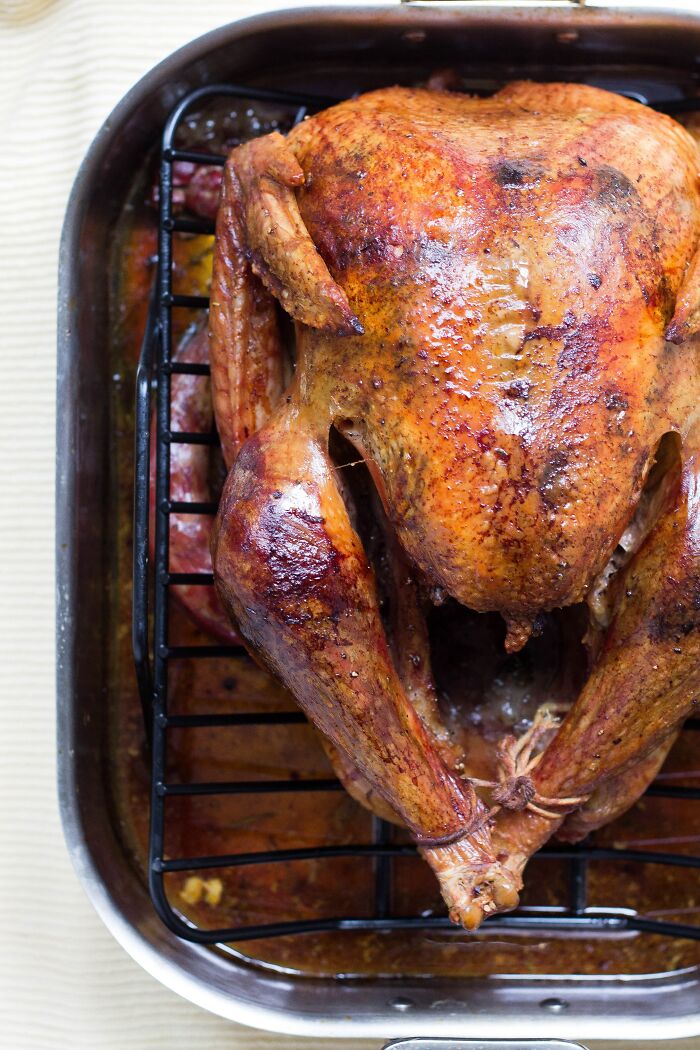 Rotisserie chicken from the deli-and it’s already cooked for you. Shred it for chicken tacos, chicken soup, make stock for other soup bases.
Rotisserie chicken from the deli-and it’s already cooked for you. Shred it for chicken tacos, chicken soup, make stock for other soup bases.
Eggs-so versatile for a boost of protein. Add to ramen, eat by itself. Very filling if made into an omelet with a side of rice. Dice up into egg salad sandwiches.
Rice-can make fried rice, Spanish rice, jambalaya rice or put into casseroles. However you use it, it will fill you up.
Potatoes-bake ‘em, fry them, shred them boil them, mash them.
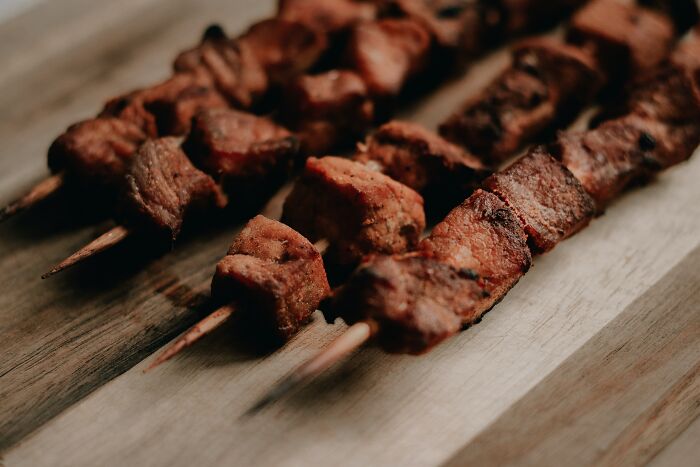 Don’t get stuck on having to use a certain kind of meat and look for what suits your budget. Ground beef has been really expensive so I have been buying ground pork and ground turkey instead. Chicken thigh meat works in most recipes that ask for chicken breast. Watch for sales on meat around holidays.
Don’t get stuck on having to use a certain kind of meat and look for what suits your budget. Ground beef has been really expensive so I have been buying ground pork and ground turkey instead. Chicken thigh meat works in most recipes that ask for chicken breast. Watch for sales on meat around holidays.
Any meat, properly prepared, is just like a fine cut of "better" stuff. Being prejudged about meat is stupid and deprives you of nutrients.
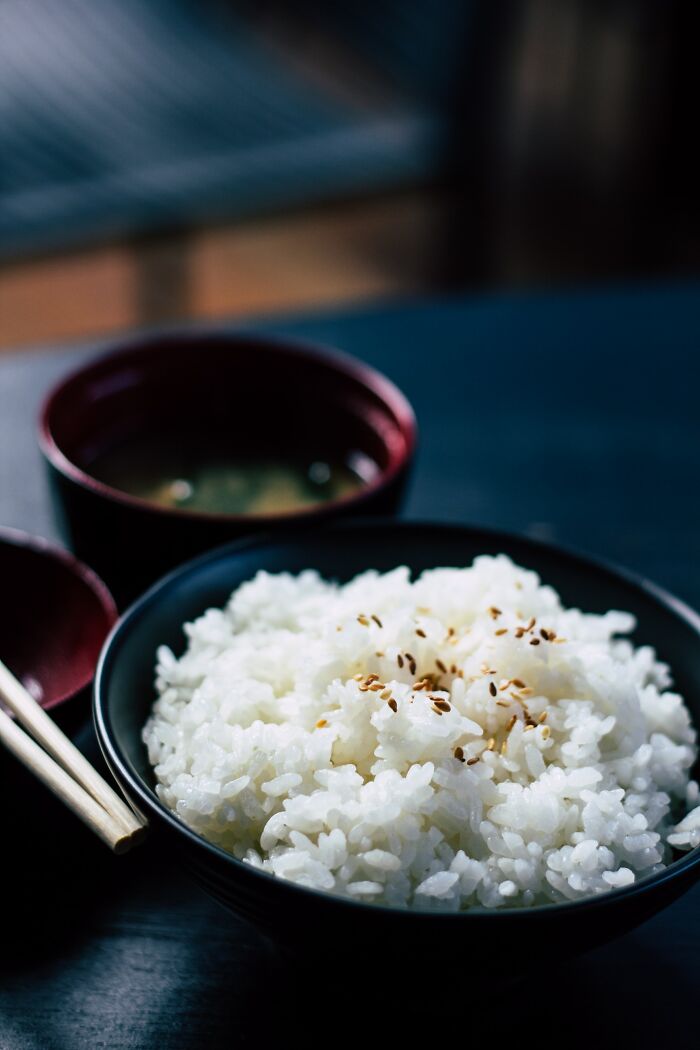 I'm intentional about leftover meals. I'll make extra rice one day and then use it to make fried rice [the next day]. At the end of the week, I make a homemade pizza crust and then put whatever leftovers are still in the fridge on top of it. My kids love 'leftover pizza.' It's always fun and different every week. Last week, we made three pizzas and our toppings were tacos, chicken curry, and spaghetti.
I'm intentional about leftover meals. I'll make extra rice one day and then use it to make fried rice [the next day]. At the end of the week, I make a homemade pizza crust and then put whatever leftovers are still in the fridge on top of it. My kids love 'leftover pizza.' It's always fun and different every week. Last week, we made three pizzas and our toppings were tacos, chicken curry, and spaghetti.
Chicken curry....hm, okay. But tacos and spaghetti as pizza topping? Like, wtf! Once Ristorante had an US-edition deep-frozen pizza, with spaghetti on it (it wasn't popular). I thought, those-guys-at-Ristorante-are-nuts-who-on-earth-will-do-this-with-a-pizza? But now, I see.
“The good news is that the ingredients for most of these recipes aren't too pricey and you can still hunt for bargains to make the dish cheaper. Buying in bulk is always a winner too when it comes to saving money so it's a great idea to get together with friends and maybe take it in turns to make your favorite fakeaways.”
According to Jake, the most important part of creating a fake takeaway (aka a fakeaway) is getting the seasoning just right. “Salt and pepper won't break the bank, but they can make or break a meal. Don't forget that sugar can take a dish to the next level too,” he suggested what to focus on.
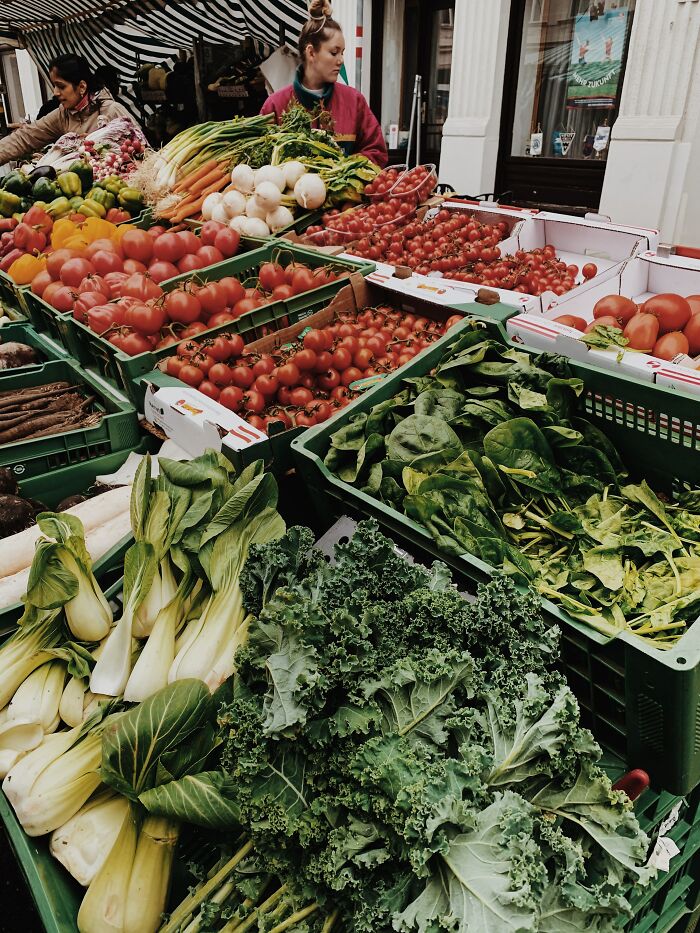 Eating less meat. Showing up at the farmers market near closing and buying a lot of things at reduced prices.
Eating less meat. Showing up at the farmers market near closing and buying a lot of things at reduced prices.
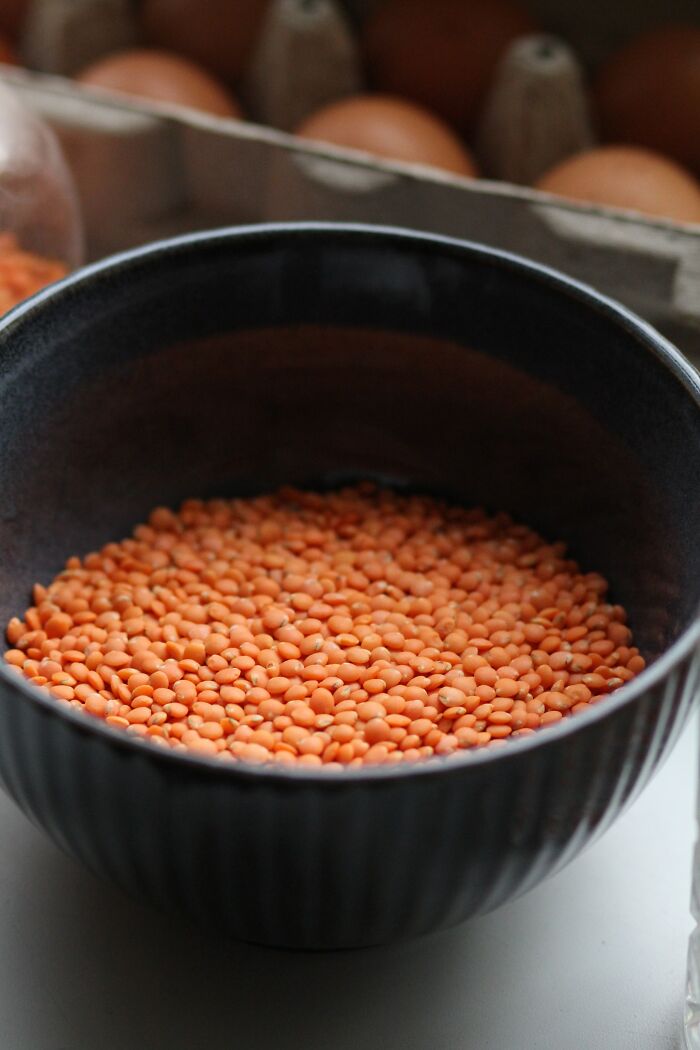 My local small Persian grocer has the best prices on produce, feta, spices, and especially fresh herbs.
My local small Persian grocer has the best prices on produce, feta, spices, and especially fresh herbs.
things I've always done that make my shop more affordable:
Eat a ton of lentils - delicious, cheap, easy, can be spiced and prepared in infinite exciting ways and in many different countries' styles.
95% vegetarian diet. I eat seafood 1-2 times a month and poultry maybe 3-4 times a year.
I've got a son with some severe fiod anxiety issues. Getting him to try new foods is an uphill battle for everyone involved. I get frustrated that I put effort into a meal he can even touch. He will tell me it smells great, and looks delicious. Then will proceed to sit in front of the plate and cry. Not because he doesn't want to eat but I can hear him saying to himself "it smells good, why an I so dumb all I need to do is eat it. I'm sure I will like it so why can't I do it." It breaks my heart, and we usually end up having to try the same dish 3 or 4 times before he can even try one bite. I would love to try some of these tips but I would have to slowly integrate them or I'm afraid the kid would starve.
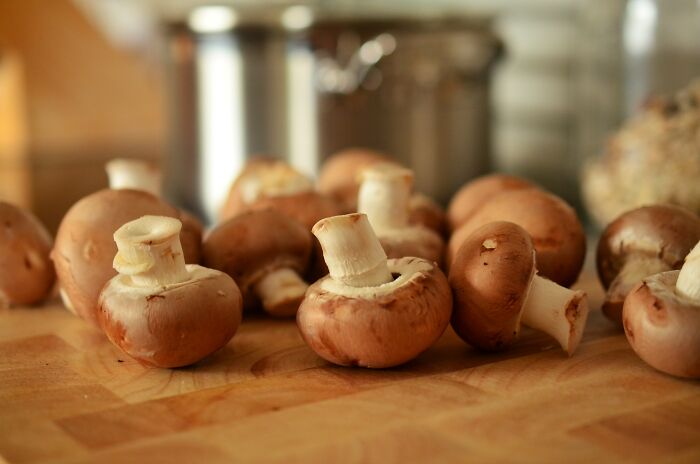 Ground mushrooms will bulk up ground beef sauce without much taste affect. Just add when beef is almost browned
Ground mushrooms will bulk up ground beef sauce without much taste affect. Just add when beef is almost browned
 This one might be obvious, but I’ve started shopping online and knowing exactly what I need to cook for the week.
This one might be obvious, but I’ve started shopping online and knowing exactly what I need to cook for the week.
I used to go to the grocery store with sort of a general plan, but not knowing exactly what ingredients I need. I would wander around, see something that looked good, and then try to plan a meal around it on the fly.
Now, I’ll come up with a couple recipes, figure out exactly everything I need, and add it all to the cart online. Doing this also helps with not buying snacks or other things I don’t need. It’s a really great feeling to total everything up in the cart and see that I’m only paying $50-60 to feed 2 people for the week.
It's the not buying snacks that makes the biggest difference. I can make a meal for four people for a couple of pounds, but then to buy myself a can of drink and a packet of crisps will cost nearly £2, the same as the meal.
 So China wise, "northerners" were poorer back in the day. There's a difference in cuisine but it's much clearer to me now having lived with some.
So China wise, "northerners" were poorer back in the day. There's a difference in cuisine but it's much clearer to me now having lived with some.
1. Meat is expensive. Use tiny slivers of pork (or bacon) stir fried in dishes of vegetables to give them meaty flavour.
2. Veg is king. Those northerners even eat salad. Usually with a lot of vinegar dressing. Probably a throwback to hide not so great veg.
3. Stodge. Their bread is like bricks. Cheaply made with flour, water, minimal proving. I don't recommend it but it does fill you up. You can also add flavour by sandwiching with braised aubergine and pork. Yes, more pork fat flavour.
For my regular cheap self, I have some habits that keep things cheap which make up for the fact I spend a lot of money on food as a vice.
1. Lidl. When I can. I'm very selective about meat and veg so if it doesn't look great I'll buy elsewhere. Cheap chocolate, eggs, sliced meats, foreign treats...all lidl. Also the cheapest place for cotton pads.
2. Own brand fun. Unless branded cereal is on a major deal, I do own brand. Cheaper and weirdly healthier because they spend less adding sugar.
3. Oats. Love them. Super cheap. Even if you went organic they're cheap. Raisins, milk, two minutes in the microwave. Can also use up every out of date Nutella, peanut butter, biscoff, jam jar you own as toppings.
4. I memorise prices of things I like and if its over that line, I don't buy them. Doesn't work for necessities, but water crackers and the ilk, my brain knows things to be £1 or less...
5. Drinks are water for me. I am grossly resentful when dining out that soft drinks can be £3 and up. You can't really reuse teabags the way we used to but you can if you let it brew in a pot for longer.
6. If you use the oven, use it to cook more than one thing. Sweet potatoes constantly get roasted when I bake cakes.
I use a grocery shopping app where I can enter and save prices. That way I have a ballpark idea of the final price even before I get to the store. Also, I can compare prices at other stores to see who’s cheapest.
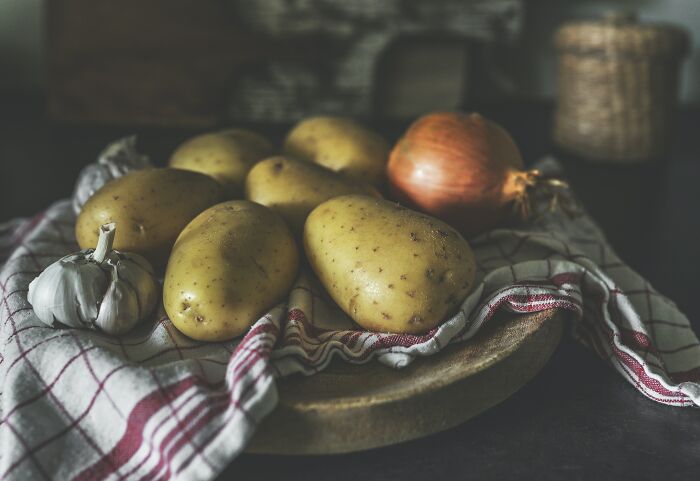 Choose potatoes, onions, and garlic with no blemishes. Keep them dry, dark, and separated (onions and garlic can be together, but the potatoes need to be kept in another area). You can keep all these for weeks. I like to use pantyhose and hang the potatoes on the inside of my pantry with hooks.
Choose potatoes, onions, and garlic with no blemishes. Keep them dry, dark, and separated (onions and garlic can be together, but the potatoes need to be kept in another area). You can keep all these for weeks. I like to use pantyhose and hang the potatoes on the inside of my pantry with hooks.
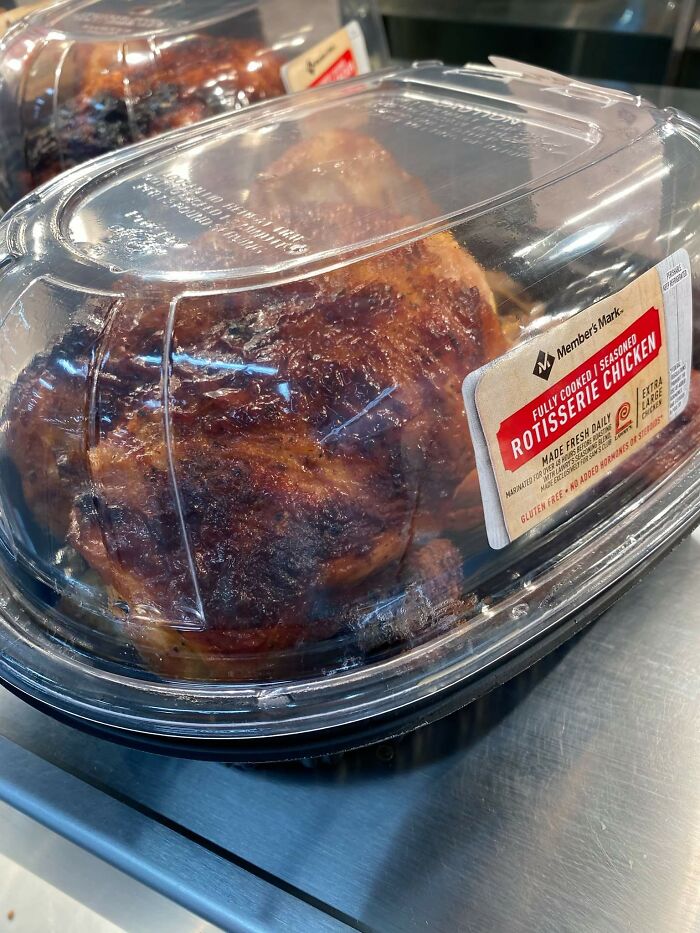 Rotisserie chicken from Sam’s for $4.98 (they’re huge), instant mashed potatoes (family size is like $2.49), and a bag of fresh green beans ($3.50) roasted with garlic powder, black pepper and olive oil. $11 to feed family of 4.
Rotisserie chicken from Sam’s for $4.98 (they’re huge), instant mashed potatoes (family size is like $2.49), and a bag of fresh green beans ($3.50) roasted with garlic powder, black pepper and olive oil. $11 to feed family of 4.
Spaghetti is always cheap and easy to feed multiples. Rice and homemade gravy. I make a cheap broccoli cheese casserole that easily feeds 4. But for real. Those Sams rotisserie chickens are a godsend. So easy.
 The usual: I shop at Aldi and a Korean vegetable store. I also check the local flyers and buy things on sale. Also I have been doing intermittent fasting (for health reasons) so that's one less meal per day. I'm hoping that everyone else has answers because other than being really mindful of food waste, it's tough.
The usual: I shop at Aldi and a Korean vegetable store. I also check the local flyers and buy things on sale. Also I have been doing intermittent fasting (for health reasons) so that's one less meal per day. I'm hoping that everyone else has answers because other than being really mindful of food waste, it's tough.
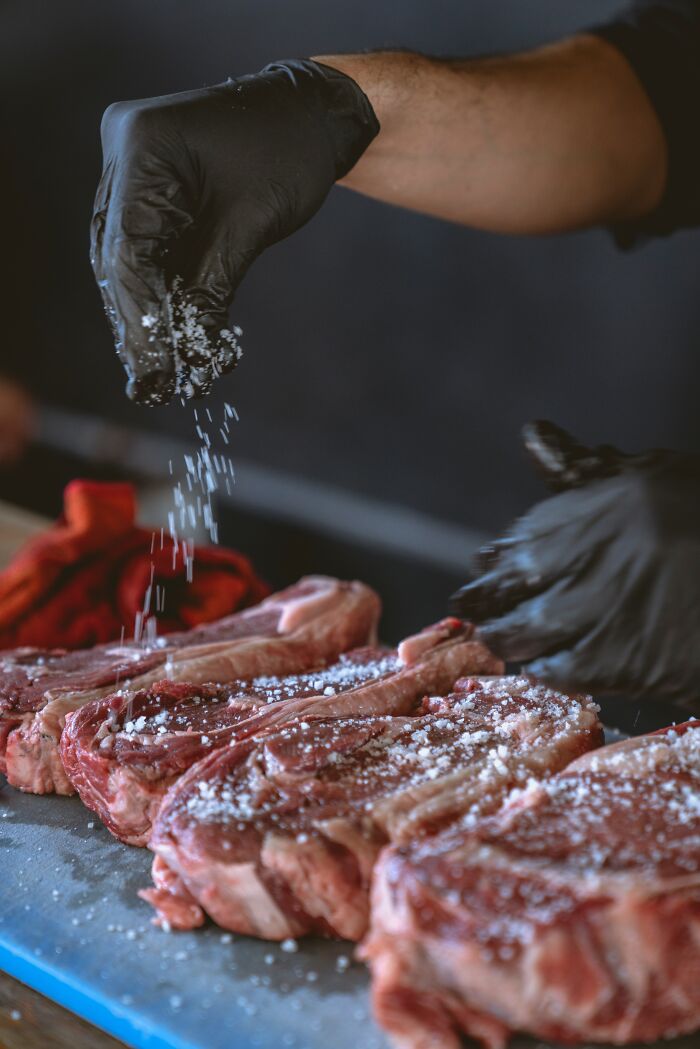 Honestly I've been buying bulk meats and freezing extra for years with a vacuum sealer. I barely noticed the price increases. If I can't get a good deal at the market I just grab out of the freezer.
Honestly I've been buying bulk meats and freezing extra for years with a vacuum sealer. I barely noticed the price increases. If I can't get a good deal at the market I just grab out of the freezer.
Also trying to reduce meat intake can drastically reduce bills. Tofu is usually like a dollar per lb at costco. And most vegetables are even cheaper. Fill up on healthy vegetables and a more modest serving of meat.
As for vegetables, just buy what's fresh and plentiful and usually on sale.
Also check out farmer's markets and produce stands and look for deals with CSA farmers.
A vacuum sealer is a good investment. We buy bulk meats on sale and portion them into sealer bags and freeze.
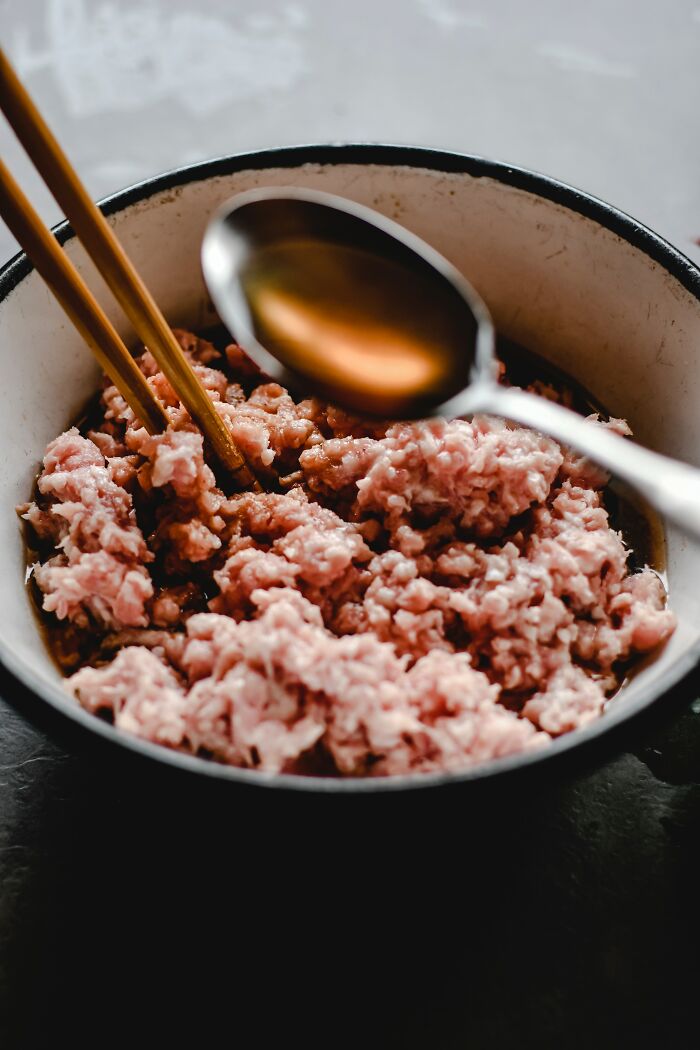 We use ground turkey in place of ground beef. Way leaner, and properly seasoned it’s hard to tell a difference. Burgers, chili, tacos, works for all of it
We use ground turkey in place of ground beef. Way leaner, and properly seasoned it’s hard to tell a difference. Burgers, chili, tacos, works for all of it
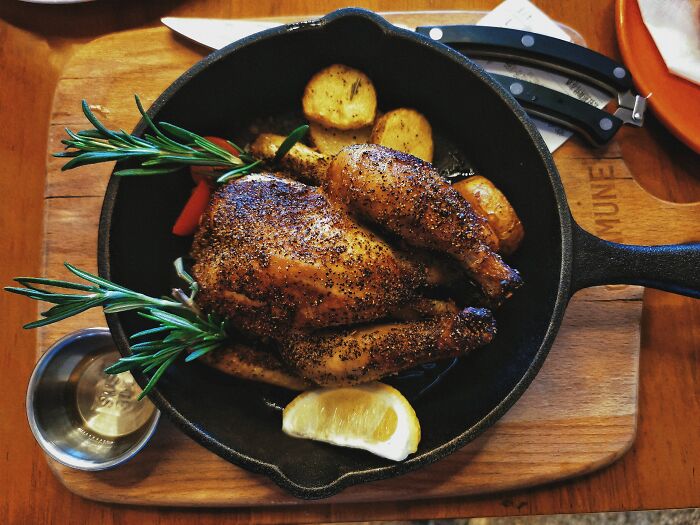 Thank god for culinary school- because it’s taught me how to menu plan and utilize the same ingredients in different ways, as well as how to keep veggies longer and what to freeze, as well as I have been buying whole chickens (I live alone so it’s easier with less people to feed BUT) and fabricating them on my own and freezing the rest for later use as well as the carcass to make homemade stocks and broths. I’ve also been saving veggie and herb scraps to add to homemade stocks and broths as well. It’s been saving me a ton of money thankfully.
Thank god for culinary school- because it’s taught me how to menu plan and utilize the same ingredients in different ways, as well as how to keep veggies longer and what to freeze, as well as I have been buying whole chickens (I live alone so it’s easier with less people to feed BUT) and fabricating them on my own and freezing the rest for later use as well as the carcass to make homemade stocks and broths. I’ve also been saving veggie and herb scraps to add to homemade stocks and broths as well. It’s been saving me a ton of money thankfully.
I took one semester of Home Economics (I called it Bachelor Survival) and learned so much handy stuff that it's a wonder there isn't a Kitchen License needed to enter a food prep area. Learn to cook, everyone, it's FUN! A lifetime hobby with rewards.
 I have all the apps for my local grocery stores so I can compare prices.
I have all the apps for my local grocery stores so I can compare prices.
Buy lots of frozen veggies because they're cheaper right now.
Bought a cheap rice cooker and eat a lot of rice to stretch my meals out.
Have a small chest freezer so I buy meat in bulk when it's on sale.
 I turn maruchan ramen noodles into all kinds of things. Spaghetti, Alfredo, butter noodles, pesto, beef stew and noodles, etc. If I need carbs in a dish, I add it. I save the flavor packs for soup bases/broth or whatever I might need seasoning for. Like I just used a chicken packet to make the base for broccoli cheddar soup. The beef packs work well with caramelized onions for a French onion soup. Add the noodles as well!
I turn maruchan ramen noodles into all kinds of things. Spaghetti, Alfredo, butter noodles, pesto, beef stew and noodles, etc. If I need carbs in a dish, I add it. I save the flavor packs for soup bases/broth or whatever I might need seasoning for. Like I just used a chicken packet to make the base for broccoli cheddar soup. The beef packs work well with caramelized onions for a French onion soup. Add the noodles as well!
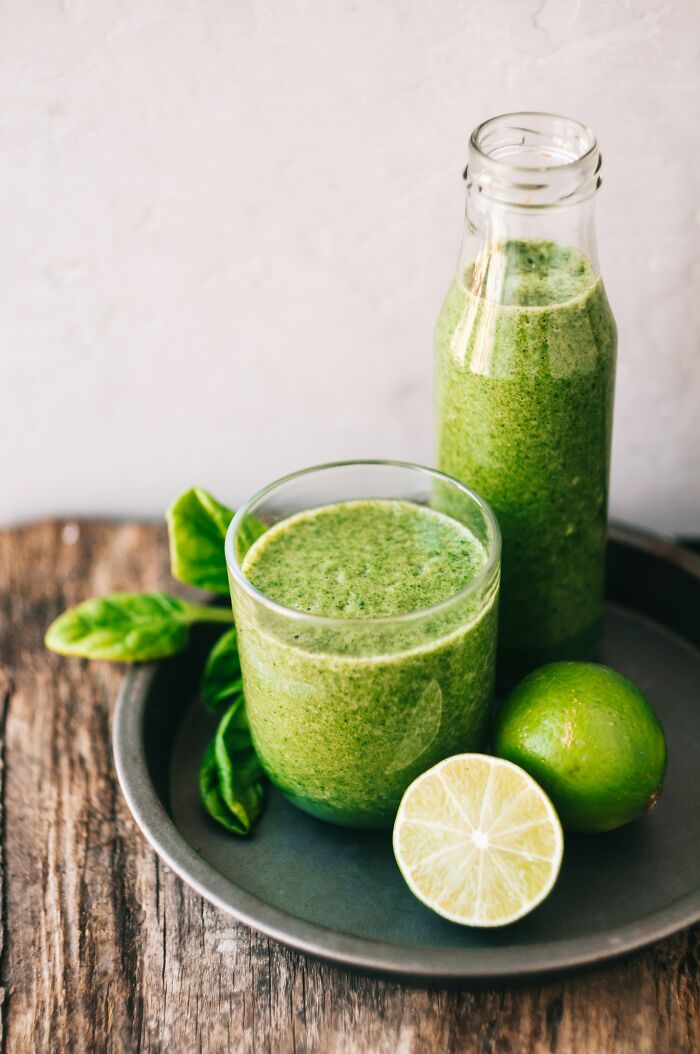 I switched to smoothies instead of whole fruits. I can make a combination of fresh and frozen fruits without compromising the flavor since the texture doesn’t matter too much in the smoothie.
I switched to smoothies instead of whole fruits. I can make a combination of fresh and frozen fruits without compromising the flavor since the texture doesn’t matter too much in the smoothie.
 Buy cheaper - chicken legs rather than boneless-skinless thighs.
Buy cheaper - chicken legs rather than boneless-skinless thighs.
Research costs - online (Walmart and Amazon) vs local shops.
Rotate through 2-3 markets for sale items.
Much more store-brand items like vinegar, mustard, milk.
Downgrade some items. Gala Apples cost $1 less per pound than Honey Crisp. More common red bell pepper, avoid the more expensive orange and yellow.
Buy family-size chicken packages, repackage into 1 meal packages and freeze.
Plan out menus so I can prep for several meals at one time, usually freeze before cooking.
Ask people in the parking lot if they remember how much they paid for that pack of paper towels. No one is ever surprised. Every one is watching prices like a hawk.
my first "hack" for the Americans would be to drastically reduce your meat intake. The US (and Australia) are the countries with THE highest consumption of meat in the world. (in perspective, 30times as much as an average person from India). It's better for your health and it's better for the environment. And factory farms are appaling, I mean, a chicken for $5...that poor thing never saw daylight in its miserable life.
The import tip is to actually eat what you buy. The amount of food waste per capita around the world is horrifying! Too often people over-buy perishable foods and them have to throw them away, or they make too much, and leave it in the fridge, ignoring it until furry. If you buy something, eat it.
Some are good, but a lot of these tips is eating the same thing 24/7, which can't be healthy no matter what it is. And, a lot of the rest rely on having unlimited time, energy, and motivation. I'm broke but I still have more money than I do the other 3.
The time factor often is the problem. Unfortunately I often have the situation that I leave home in the early morning, returning in the middle of the night, which even makes simple meal prep difficult, let alone some discounter-hopping or extended price checks. Also, buying in bulk needs storage space.
Load More Replies...Chickens are the best investment I made in the last years. A box of screws and a trip to the scrapyard for discarted plywood for their coop was the total cost (thanks to my neighbour who provided the chicks) Now they eat all kitchen scraps, keep the garden pest free and we have 5-6 eggs a day!
Two things I was told: 1. Try to keep only hens. If a roster is present the hens themselves are all getting riled up. Plus none of the noise a roster makes. 2. don't give the chicken any meat scraps to eat. The might get used to the taste and pick on each other etc. Can you confirm that?
Load More Replies...My "hack" would be to not have food allergies and intolerances. My food is so expensive because I have to buy the specialist items. I cook from scratch which helps but even the basics can get expensive. It's frustrating that it costs me so much more!
I feel you there, the price of a gluten free loaf of bread when I was struggling and didn't have the time to bake from scratch could make me cry.
Load More Replies...Is it only me that finds it odd that on most posts here meat was more expensive than vegetables? I live in Slovakia and here meat is sometimes half the price of tomatoes per kilo (meaning chicken, we don't eat pork or beef at home so haven't checked those). Vegetables have become ridiculously expensive in the last few years, unlike meat which is also a staple here
Meal plan, have an idea of what to do with leftovers, and buy bulk when possible. I buy groceries weekly because I find it easier and I spend a lot less money. I did have to spend $75 today but I was almost out of oils and since I cook at home for 6 days of the week I do buy larger sizes and better quality.
Once or twice a month I roast a small chicken. That's our dinner for the day, and by the time we're done eating and cleaning up, it's cool enough to pick it apart. There's leftover meat, and I save the drippings and carcass to make soup or chicken stock.
Might not be an option for some, but I live in a community that is huge on fishing and hunting. Extra fish? Trade a hunter for caribou/deer/elk/moose. Slow fish year? Likely you have some left in the fridge that can be fried or turned into fish cakes. A lot of the duck hunters I know will happily give you a duck they’ve shot, and they cook similarly to chicken but a little gamier. Meat doesn’t have to be limited to what you find in the store, just have to know the right people.
People need to consider how many factors there are and how things change regionally. Ground beef and cheese are two of the cheapest things we can buy in my area. Tofu and the two international groceries are some of the most expensive. I'd love to go to the farmer's market but it opens after I start work, and closes before I do.
My tip is cook several meals one day on the weekend, if you can. You consolidate all the prep and cleanup so it saves a lot of time. Also, if you wash and prep fruits and veggies when you get home from the store, you are much more likely to eat them. I wash and pre-cut strawberries, wash and take grapes off the vine, wash and cut up broccoli etc then it's grab and go.
Learn how to break down a whole raw chicken. Literally 5mins of youtube videos and you are good to go after a little practice. We buy a whole chicken every Friday at or local market, butcher it down and use for dishes over the weekend. Then I use the carcass to make chicken stock to use in other dishes during the week. I've not bought prepackaged chicken pieces in years!
My tip, for what it's worth, is to stop going to restaurants! went to my favourite Indian and a meal which cost £35 a head last month, now comes to £50 a head! I m aware that costs have risen due to the pandemic and inflation, etc, but if you need to save money, cut back on eating out.
my first "hack" for the Americans would be to drastically reduce your meat intake. The US (and Australia) are the countries with THE highest consumption of meat in the world. (in perspective, 30times as much as an average person from India). It's better for your health and it's better for the environment. And factory farms are appaling, I mean, a chicken for $5...that poor thing never saw daylight in its miserable life.
The import tip is to actually eat what you buy. The amount of food waste per capita around the world is horrifying! Too often people over-buy perishable foods and them have to throw them away, or they make too much, and leave it in the fridge, ignoring it until furry. If you buy something, eat it.
Some are good, but a lot of these tips is eating the same thing 24/7, which can't be healthy no matter what it is. And, a lot of the rest rely on having unlimited time, energy, and motivation. I'm broke but I still have more money than I do the other 3.
The time factor often is the problem. Unfortunately I often have the situation that I leave home in the early morning, returning in the middle of the night, which even makes simple meal prep difficult, let alone some discounter-hopping or extended price checks. Also, buying in bulk needs storage space.
Load More Replies...Chickens are the best investment I made in the last years. A box of screws and a trip to the scrapyard for discarted plywood for their coop was the total cost (thanks to my neighbour who provided the chicks) Now they eat all kitchen scraps, keep the garden pest free and we have 5-6 eggs a day!
Two things I was told: 1. Try to keep only hens. If a roster is present the hens themselves are all getting riled up. Plus none of the noise a roster makes. 2. don't give the chicken any meat scraps to eat. The might get used to the taste and pick on each other etc. Can you confirm that?
Load More Replies...My "hack" would be to not have food allergies and intolerances. My food is so expensive because I have to buy the specialist items. I cook from scratch which helps but even the basics can get expensive. It's frustrating that it costs me so much more!
I feel you there, the price of a gluten free loaf of bread when I was struggling and didn't have the time to bake from scratch could make me cry.
Load More Replies...Is it only me that finds it odd that on most posts here meat was more expensive than vegetables? I live in Slovakia and here meat is sometimes half the price of tomatoes per kilo (meaning chicken, we don't eat pork or beef at home so haven't checked those). Vegetables have become ridiculously expensive in the last few years, unlike meat which is also a staple here
Meal plan, have an idea of what to do with leftovers, and buy bulk when possible. I buy groceries weekly because I find it easier and I spend a lot less money. I did have to spend $75 today but I was almost out of oils and since I cook at home for 6 days of the week I do buy larger sizes and better quality.
Once or twice a month I roast a small chicken. That's our dinner for the day, and by the time we're done eating and cleaning up, it's cool enough to pick it apart. There's leftover meat, and I save the drippings and carcass to make soup or chicken stock.
Might not be an option for some, but I live in a community that is huge on fishing and hunting. Extra fish? Trade a hunter for caribou/deer/elk/moose. Slow fish year? Likely you have some left in the fridge that can be fried or turned into fish cakes. A lot of the duck hunters I know will happily give you a duck they’ve shot, and they cook similarly to chicken but a little gamier. Meat doesn’t have to be limited to what you find in the store, just have to know the right people.
People need to consider how many factors there are and how things change regionally. Ground beef and cheese are two of the cheapest things we can buy in my area. Tofu and the two international groceries are some of the most expensive. I'd love to go to the farmer's market but it opens after I start work, and closes before I do.
My tip is cook several meals one day on the weekend, if you can. You consolidate all the prep and cleanup so it saves a lot of time. Also, if you wash and prep fruits and veggies when you get home from the store, you are much more likely to eat them. I wash and pre-cut strawberries, wash and take grapes off the vine, wash and cut up broccoli etc then it's grab and go.
Learn how to break down a whole raw chicken. Literally 5mins of youtube videos and you are good to go after a little practice. We buy a whole chicken every Friday at or local market, butcher it down and use for dishes over the weekend. Then I use the carcass to make chicken stock to use in other dishes during the week. I've not bought prepackaged chicken pieces in years!
My tip, for what it's worth, is to stop going to restaurants! went to my favourite Indian and a meal which cost £35 a head last month, now comes to £50 a head! I m aware that costs have risen due to the pandemic and inflation, etc, but if you need to save money, cut back on eating out.

 Dark Mode
Dark Mode 

 No fees, cancel anytime
No fees, cancel anytime 


